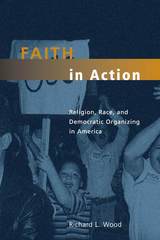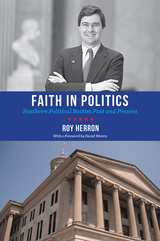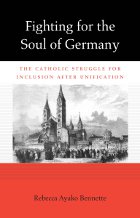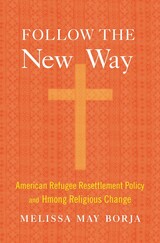5 start with F start with F

To find out how this faith-based form of community organizing succeeds, Richard L. Wood spent several years working with two local groups in Oakland, California—the faith-based Pacific Institute for Community Organization and the race-based Center for Third World Organizing. Comparing their activist techniques and achievements, Wood argues that the alternative cultures and strategies of these two groups give them radically different access to community ties and social capital.
Creative and insightful, Faith in Action shows how community activism and religious organizations can help build a more just and democratic future for all Americans.

Roy Herron graduated with highest honors from the University of Tennessee at Martin, then studied New Testament and Ethics in Scotland before earning Divinity and Law degrees from Vanderbilt University. But he came home to West Tennessee and served the Volunteer State in both the Tennessee House and Senate. For four decades, Herron served as a legislator, attorney, teacher, and Methodist minister. In that work, he published op-ed essays and articles in Tennessee’s leading newspapers and publications from The Japan Times to The Wall Street Journal on various topics including constitutional liberties, economic justice, health care, politics, and more.
This informative volume collects the most powerful of these writings, adding helpful updates and contemporary insights. With an engaging, conversational style, Herron addresses voter ID laws, drunk-driving statutes, women’s rights and many recurring, contemporary issues. Whether describing the challenges facing his elderly mother as she attempted to exercise her right to vote, or the struggles of working women and men facing illnesses without health insurance, Herron demonstrates an earnestness and thoughtfulness all too rare in politics.
These nearly fifty essays and articles provide evidence that Herron’s Democratic Party and Christianity are not mutually exclusive. Indeed, Herron describes how faith brought him to politics and to fighting for justice, jobs, and constitutional freedoms for all citizens. Faith at Work is a veritable guidebook on how faith and spirituality should affect decision making and advocacy in public life.
ROY HERRON was a Tennessee State Representative from 1987 to 1997 and State Senator from 1997 to 2013. He wrote Things Held Dear: Soul Stories for My Sons and God and Politics: How Can a Christian Be in Politics? He coauthored, with Cotton Ivy, Tennessee Political Humor: Some of These Jokes You Voted For. He lawyers and writes in West Tennessee and Nashville.

Historians have long believed that Catholics were late and ambivalent supporters of the German nation. Rebecca Ayako Bennette’s bold new interpretation demonstrates definitively that from the beginning in 1871, when Wilhelm I was proclaimed Kaiser of a unified Germany, Catholics were actively promoting a German national identity for the new Reich.
In the years following unification, Germany was embroiled in a struggle to define the new nation. Otto von Bismarck and his allies looked to establish Germany as a modern nation through emphasis on Protestantism and military prowess. Many Catholics feared for their future when he launched the Kulturkampf, a program to break the political and social power of German Catholicism. But these anti-Catholic policies did not destroy Catholic hopes for the new Germany. Rather, they encouraged Catholics to develop an alternative to the Protestant and liberal visions that dominated the political culture. Bennette’s reconstruction of Catholic thought and politics sheds light on several aspects of German life. From her discovery of Catholics who favored a more “feminine” alternative to Bismarckian militarism to her claim that anti-socialism, not anti-Semitism, energized Catholic politics, Bennette’s work forces us to rethink much of what we know about religion and national identity in late nineteenth-century Germany.

An incisive look at Hmong religion in the United States, where resettled refugees found creative ways to maintain their traditions, even as Christian organizations deputized by the government were granted an outsized influence on the refugees’ new lives.
Every year, members of the Hmong Christian Church of God in Minneapolis gather for a cherished Thanksgiving celebration. But this Thanksgiving takes place in the spring, in remembrance of the turbulent days in May 1975 when thousands of Laotians were evacuated for resettlement in the United States. For many Hmong, passage to America was also a spiritual crossing. As they found novel approaches to living, they also embraced Christianity—called kev cai tshiab, “the new way”—as a means of navigating their complex spiritual landscapes.
Melissa May Borja explores how this religious change happened and what it has meant for Hmong culture. American resettlement policies unintentionally deprived Hmong of the resources necessary for their time-honored rituals, in part because these practices, blending animism, ancestor worship, and shamanism, challenged many Christian-centric definitions of religion. At the same time, because the government delegated much of the resettlement work to Christian organizations, refugees developed close and dependent relationships with Christian groups. Ultimately the Hmong embraced Christianity on their own terms, adjusting to American spiritual life while finding opportunities to preserve their customs.
Follow the New Way illustrates America’s wavering commitments to pluralism and secularism, offering a much-needed investigation into the public work done by religious institutions with the blessing of the state. But in the creation of a Christian-inflected Hmong American animism we see the resilience of tradition—how it deepens under transformative conditions.

Does religion promote political mobilization? Are individuals motivated by their faith to focus on issues of social justice, personal morality, or both? What is the relationship between religious conviction and partisanship? Does religious identity reinforce or undermine other political identifications like race, ethnicity, and class?
The answers to these questions are hardly monolithic, varying between and within major American religious groups. With an electoral climate increasingly shaped by issues of faith, values, and competing moral visions, it is both fascinating and essential to examine the religious and political currents within America's major religious traditions.
J. Matthew Wilson and a group of prominent religion and politics scholars examine these topics and assess one question central to these issues: How does faith shape political action in America's diverse religious communities? From Pews to Polling Places seeks to cover a rich mosaic of religious and ethnic perspectives with considerable breadth by examining evangelical Christians, the religious left, Catholics, Mormons, African Americans, Latinos, Jews, and Muslims. Along with these groups, the book takes a unique look at the role of secular and antifundamentalist positions, adding an even wider outlook to these critical concerns.
The contributors demonstrate how different theologies, histories, and social situations drive distinct conceptualizations of the relationship between religious and political life. At the same time, however, the book points to important commonalities across traditions that can inform our discussions on the impact of religion on political life. In emphasizing these similarities, the authors explore the challenges of political mobilization, partisanship, and the intersections of religion and ethnicity.
READERS
Browse our collection.
PUBLISHERS
See BiblioVault's publisher services.
STUDENT SERVICES
Files for college accessibility offices.
UChicago Accessibility Resources
home | accessibility | search | about | contact us
BiblioVault ® 2001 - 2024
The University of Chicago Press









